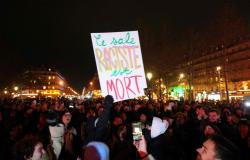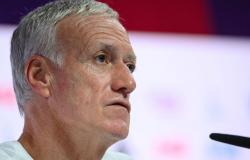
The current economic and political situation in which Germany and France find themselves respectively, as well as the degraded quality of relations between these two partners constitute a serious source of concern for Europe at a time when, precisely, European construction has never been so threatened.
The breakup of the tripartite coalition in power in Berlin, the rise of the far-right AFD party, an economy that is close to zero growth, are all signals that reveal a Germany today struggling to reinvent a strategic model of development which has been based, for more than twenty years, on security delegated to the United States, low-cost energy supplied by Russia, and the Chinese market for its industrial exports. Russia’s invasion of Ukraine shattered this triptych and considerably weakened the EU’s leading economy, one of the engines of European construction.
On this side of the Rhine, we will not dwell on the situation of France, suspended by the irresponsibility and pusillanimity of its political class since the extravagant dissolution of the National Assembly last June: absence of parliamentary majority, abysmal debt, endemic public deficit, gradual erasure on the European and international scenes, a now well-known picture which reveals a country in breakdown and incapable of playing the historic role of driving force of European construction which was his for 70 years.
These situations, complicated to say the least, in which France and Germany find themselves, combine to dangerously affect the Franco-German relationship, the pillar of peace in Europe and the keystone of European construction. Under the mandate of Chancellor Scholz, disagreements between Berlin and Paris have indeed multiplied on major subjects:
-On the lessons to be learned from the war in Ukraine first of all, while Paris ardently pleads for a strengthening of European defense, Berlin clings to American protection and favors the strengthening of NATO.
-On Franco-German military cooperation, the list of abandoned or suspended projects is growing (modernization of Tiger combat helicopters, joint program on maritime patrol aircraft) while the two emblematic projects of the future Franco-German combat tank (MGCS) and the Future Air Combat System (SCAF) are slowing down against a backdrop of divergent industrial interests.
-On Europe’s energy supply, which combines three climatic, geopolitical and industrial crises, and crystallizes around the debates on nuclear power and the functioning of the European electricity market.
-On Mercosur, to which Germany is very favorable in the name of free trade and to which France has expressed its strong opposition, particularly on the agricultural, environmental and health aspects.
The issue of instability and difficulties of all kinds facing Germans and French today and the significant distancing that the relationship between Paris and Berlin is undergoing takes on its full relief in a crucial context for the European Union, itself even faced with strategic uncertainties about its capacity to create military, economic and political sovereignty.
Military sovereignty in the face of a despotic and imperialist Russia while the risk of American disengagement is less and less hypothetical with the arrival of a new President in the White House.
Political sovereignty in the face of a world where the growing Sino-American rivalry is becoming more and more evident, where conflicts are multiplying in the four corners of the planet and where the United Nations and international law are giving way more and more every day to the report. by force.
Economic sovereignty (industrial and commercial) in the face of Chinese aggressiveness and commercial and customs pressures from the United States.
There is certainly little to hope for over the next few months, during which it will be necessary, volens nolens, to hold back: Germany has put itself on hold until the federal elections of February 23 and the outcome negotiations on the formation of a new government, while France begins this new year without a budget and talking daily about the lifespan of the current government.
However, faced with this sluggish situation, resignation or discouragement are not appropriate. The time has indeed come for all the actors, and there are many, in the Franco-German relationship to mobilize, if only to recall the importance and the challenges of the Franco-German engine which go beyond just the two protagonists. .
Representing 48% of European GDP, 32% of the European population and 31% of the EU budget, France and Germany share a responsibility that goes well beyond their sole national interests. This is the reason why, beyond the only Franco-German “couple”, a third partner could be associated, Poland, which since 1991 has been part of the “Weimar triangle”, a cooperation framework which organizes and governs trilateral relations between Germany, France and Poland, which is becoming the first conventional military power in Europe, which has presided over the European Council since January 1 of this year. This would be a path to take to boost the Franco-German relationship and to promote a new dynamic in the Europe of security and defense, two objectives whose urgency no longer needs to be demonstrated.
A former diplomat, Bernard Valero served 45 years at the Ministry of Foreign Affairs. He was notably Consul General of France in Barcelona, Ambassador to Skopje and Brussels, Director of Communications and spokesperson for the Quai d’Orsay… Bernard Valero is today a member of the UfM Supervisory Board.





